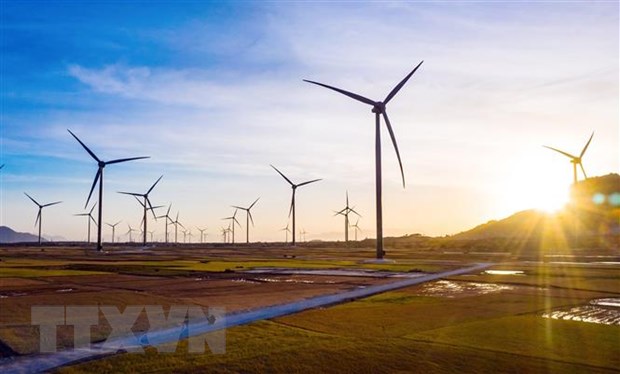Due to the adverse impacts of climate change, green growth financing projects play a very important role for the sustainable development of Viet Nam.

Due to the adverse impacts of climate change, green growth financing projects play a very important role for the sustainable development of Viet Nam, experts have said.
According to the World Bank, Viet Nam is one of the five countries most likely to be affected by climate change because most of the population lives in low-lying coastal areas. It is estimated that climate change will reduce the country's national income by up to 3.5 per cent by 2050, Vietnam News Agency reported.
Meanwhile, an International Finance Corporation (IFC) study shows climate finance in Viet Nam accounts for only about 5 per cent of total bank loans, equivalent to US$10.3 billion, and the value is projected to increase significantly in the coming years.
The IFC said the implementation of the national target of reducing total greenhouse gas emissions by 9 per cent by 2030 to mitigate the effects of climate change will provide a climate investment opportunity worth $753 billion for Viet Nam in the 2016-30 period.
Meanwhile, a survey by international rating agency MSCI found 79 per cent of investors in Asia-Pacific significantly increased their investment in Environmental, Social & Governance (ESG) in 2020 in response to uncertainties of the COVID-19 pandemic and 57 per cent of them planned further study to make investment decisions by the end of 2021.
Although the growth rate of foreign direct investment (FDI) in Viet Nam is slowing down due to the negative impact of the pandemic, capital flows into green growth projects are still quite positive.
Especially, through domestic credit institutions, international financial institutions are playing an important role in financing green economic development in Viet Nam.
Recently, French development finance organisation Proparco granted a US$50 million loan to HDBank to lend green projects to promote sustainable development.
The IFC last month also provided a $100 million long-term loan to the Orient Commercial Joint Stock Bank (OCB) to further promote the contribution of the private sector in green and sustainable growth in Viet Nam.
The green growth trend of international investment organisations is opening up many opportunities to raise capital for Vietnamese firms, however, in order to receive the international capital funding, local firms also need to make more efforts and be consistent with their planned development goals.
According to HSBC Vietnam, as Viet Nam's economy has developed rapidly over the past decade, the country is fertile land for investors looking for growth. However, to sustain the growth, the country will need to develop capital markets, and foreign capital will play an important role.
HSBC assessed anti-climate change initiatives and green finance programmes in Viet Nam are still in their infancy, but this frontier market is gradually catching up with governance and social factors.
Many investors were surprised to learn that Viet Nam has a detailed set of corporate governance rules and is on the right track with meeting a significant number of the 17 sustainable development goals of the United Nations.
For example, in the renewable energy sector, Viet Nam is recording the highest level of investment in renewable energy in the ASEAN region. To attract more FDI and provide foreign companies with a more sustainable energy source, the country has demonstrated a strong commitment to renewable energy.
However, with the increasing importance of investing in ESG, HSBC experts believe Vietnamese firms will be under greater pressure to comply with ESG standards so they will focus more on sustainable growth and further make public on ESG issues.
Investors will demand more from firms. Therefore, firms operating in the high-carbon emission sector need to rethink their business models and strategies, Vietnam News Agency quoted Wai-Shin Chan, Head of HSBC’s Climate Change Centre of Excellence and also Head of Environmental Social Governance (ESG) Research, as saying. — VNS





